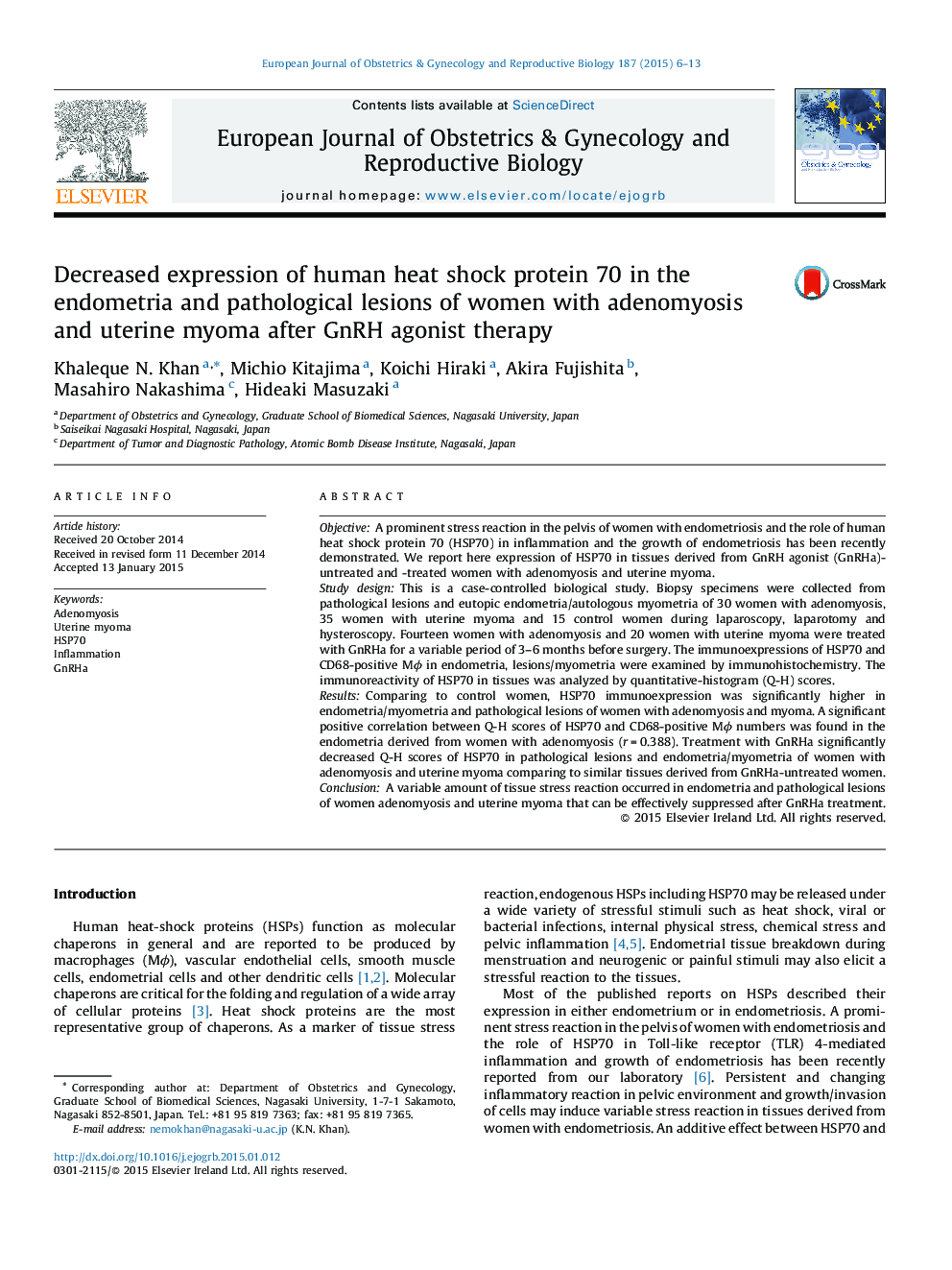| Article ID | Journal | Published Year | Pages | File Type |
|---|---|---|---|---|
| 3919594 | European Journal of Obstetrics & Gynecology and Reproductive Biology | 2015 | 8 Pages |
ObjectiveA prominent stress reaction in the pelvis of women with endometriosis and the role of human heat shock protein 70 (HSP70) in inflammation and the growth of endometriosis has been recently demonstrated. We report here expression of HSP70 in tissues derived from GnRH agonist (GnRHa)-untreated and -treated women with adenomyosis and uterine myoma.Study designThis is a case-controlled biological study. Biopsy specimens were collected from pathological lesions and eutopic endometria/autologous myometria of 30 women with adenomyosis, 35 women with uterine myoma and 15 control women during laparoscopy, laparotomy and hysteroscopy. Fourteen women with adenomyosis and 20 women with uterine myoma were treated with GnRHa for a variable period of 3–6 months before surgery. The immunoexpressions of HSP70 and CD68-positive Mϕ in endometria, lesions/myometria were examined by immunohistochemistry. The immunoreactivity of HSP70 in tissues was analyzed by quantitative-histogram (Q-H) scores.ResultsComparing to control women, HSP70 immunoexpression was significantly higher in endometria/myometria and pathological lesions of women with adenomyosis and myoma. A significant positive correlation between Q-H scores of HSP70 and CD68-positive Mϕ numbers was found in the endometria derived from women with adenomyosis (r = 0.388). Treatment with GnRHa significantly decreased Q-H scores of HSP70 in pathological lesions and endometria/myometria of women with adenomyosis and uterine myoma comparing to similar tissues derived from GnRHa-untreated women.ConclusionA variable amount of tissue stress reaction occurred in endometria and pathological lesions of women adenomyosis and uterine myoma that can be effectively suppressed after GnRHa treatment.
